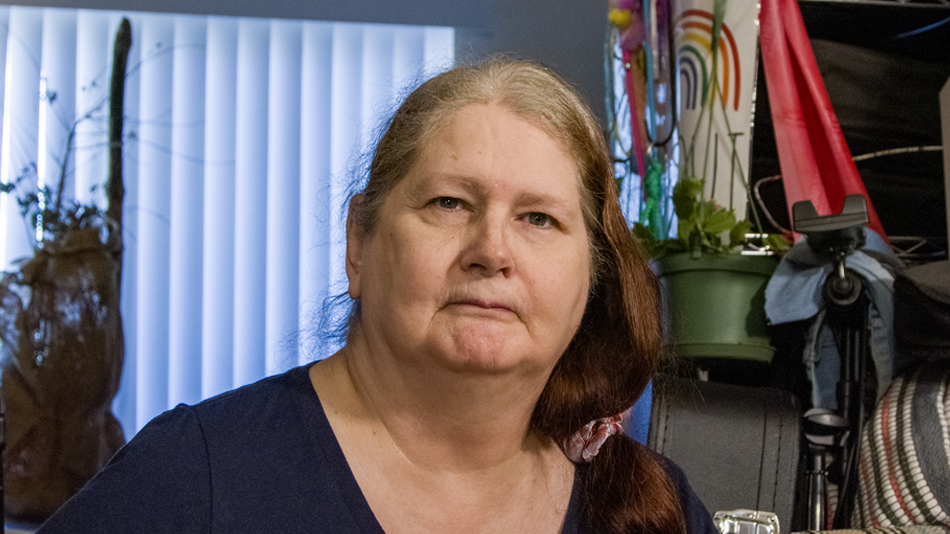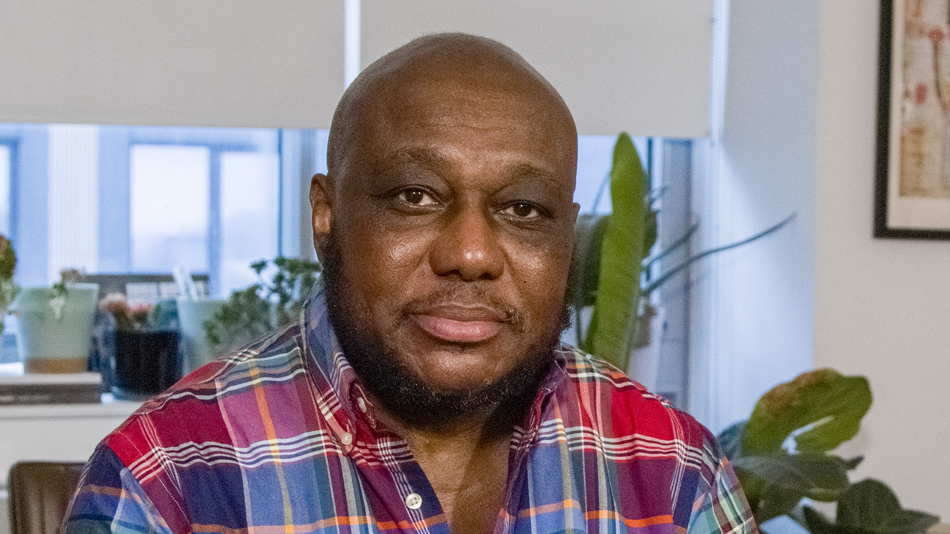I’m Tabytha Gonzalez, pronouns she and her, and I’m from Newark, New Jersey.
I first came to New York City. I was with my dance crew, or a dance crew that I was a part of, called the Bugle Boy Posse. But I was the Buglette, they just didn’t know that. So this was early in the mid-nineties. We went out there, and a couple of the women inside the group were lesbian, and we went to Christopher Street. And this is when the cars can literally pull up and you would hear the music.
And I didn’t know what houses were at that time, but I just saw the people dancing. It was just everything. And I’m like… well, I know the language now. I didn’t know it then, but I was intrigued, and I was intrigued by these beautiful women. And as I continued to venture off to this club called Traxx, I saw some of these same women on the strip, which was called a stroll.
And then certain things started to dawn, and I realized that these were trans women and they were able to be themselves. And I felt like, “Wow, this is who I am.” And I was fearful to dress up at home and to be myself. I think it was only my friend Jackie who knew then, and I would wear my stuff that I had either stolen or paid for, and I would just show it off with her.
Seeing the women out there, I started to learn the ropes. They told me that if you needed to survive or you wanted to make money, you would have to do sex work. So it was money that I controlled. It was what I got to do, and it was dangerous.
So we dealt with a lot of injustices, a lot of discrimination from police, from Johns, from people, everyday people typically, just because we existed. And at that time, we didn’t have places like Callen-Lorde or Destination Tomorrow or spaces where we can go and get hormone treatment. So we bought them off… well, I bought them off of the street.
Unfortunately, I would go down the wrong path, and the drugs would actually take over. So in order to support my habit and my lifestyle, I started to sell marijuana alongside sex, and I got arrested. I got arrested quite a few times. That was in 1997. I started going to jail in 1994, 1995.
So they placed me in the men’s prison. And being in there, I was also very afraid because I was very overtly feminine. But I started to realize a couple of things in there, is that people respect violence as opposed to someone who’s good. If you stabbed like 12 guys, if you fought the police, they knew, oh, you had a little bit more respect. You was gangster. So I became very violent and started to fight, and then ultimately got infracted.
And the way you continue to get time is by infractions. Ultimately landed me in jail, serving first a four and a half to nine, then I caught a case on the furlough, which five to seven, and I ended up maxing out and doing the whole 14. I went upstate in 1997, and they released me in 2013 in Port Authority. You had 24 hours to report to parole. You had to go to a men’s shelter. I couldn’t do that.
So I found my way back to the stroll, which is where sex workers go. It was sunny out. I was like, “Oh, I’m going to go for a walk.” And I remember stopping over here on 27th… No, on 31st or 30th, somewhere around there. It was a wig store. And I ran in there so fast and I bought me this shake-n-go wig. I forget her name, but she had the bang. And I wore this for so many years, and I just knew that I was like, “I’m going to do it this time, for real.”
So I went to Callen-Lorde and facilitated my transition, and it’s an LGBT center friendly space where trans and gender non-conforming and non-binary people can go for care. It was one of the first places that I went to, and from there I started to facilitate my transition and get into support groups.
And then I found out about Destination Tomorrow in the Bronx. So I went to Destination Tomorrow, and I would go and I was able to be reconnected with my community, when I started to see ballroom people working at this organization. And it was one of the most greatest feelings to walk back and see some of the same people who I was familiar with, like my sister Dominique, running groups and doing the director of programs. And I was so impressed.
We had access to hormone therapy, we had access to therapy, and they were providing this and getting us connected to spaces that did that. I took full advantage of it. It helped me to transform my life, and that’s what therapy did. It gave me a new way of thinking, a new way of seeing my life.
If we are able to access services like gender-affirming care, therapy, and those things that complete us as a whole person, we’re able to show up and be there for others. For me, it’s important that people understand that transitioning is not just about surgeries, not just about pronouns, and it’s about transitioning the whole self. It’s about transitioning to stories from horror to love, from victim to victorious, from student to educator, from child to mom. And I’m a proud mom of five trans kids, and I have a marriage that I wouldn’t trade for anything in this world.
Transitioning is not just about surgeries, not just about pronouns, and it's about transitioning the whole self.








Share